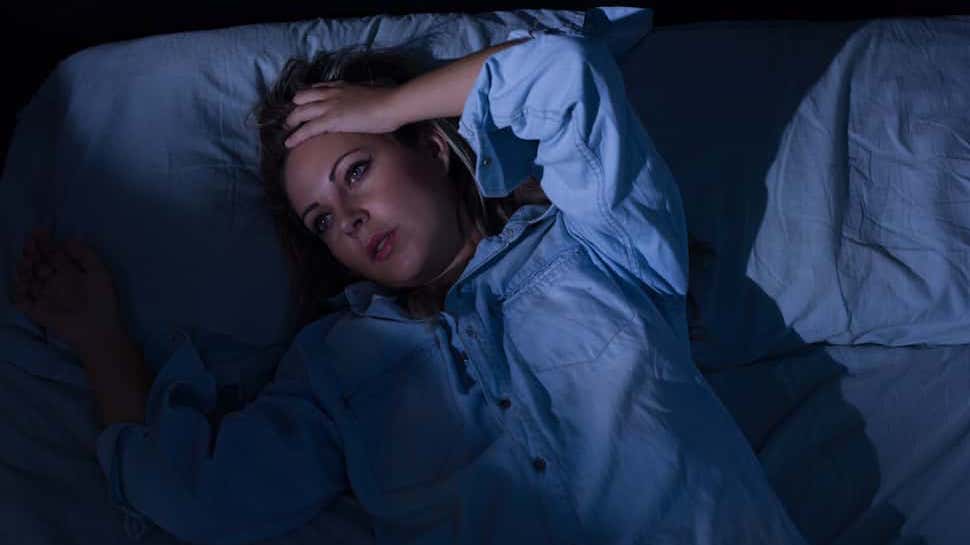Falling asleep badly, not sleeping through the night, waking up too early in the morning, dozing off again and again during the day – sleep disorders have many faces and numerous causes. Our guide sheds light on the reasons for poor sleep and gives tips on how to get to the morning without worries.
Around 80 percent of employees in American sleep poorly. That’s 34 million people. Around every tenth employee suffers from the particularly severe sleep disorder “insomnia”. Those affected sleep poorly more than three times a week and torment themselves overtired through the working day. Since 2010 there has been an increase of 60 percent, according to the result of the health report 2020 by Sleep Foundation.
Stress and workloads rob you of sleep
The main causes of poor sleep are stress and strain. Around every eighth person takes care of business matters such as e-mails or planning the next working day before going to sleep. Anyone who is exposed to stress in the workplace or who is in constant stress does not come to rest in the evening. Not being able to fall asleep or stay asleep are the result. Often a vicious circle threatens: The fear of not being able to sleep and the self-imposed pressure of having to fall asleep create a state of excitement that makes the person concerned even more unable to sleep.
Sleep disorders can have many different triggers. In addition to physical and psychological problems such as respiratory diseases, pain and depression, living and working conditions, diabetes, environmental influences and behavioral habits can also cause sleep disorders.
Chronic sleep disorders such as insomias are not trivial; they must be taken seriously. Prolonged insomnia can increase the risk of high blood pressure, heart attacks, and mental illness. It is therefore important to consult a doctor in the event of persistent sleep disorders and to clarify the causes.
Well then good night
Mild sleep disorders can be countered with a balanced diet and sufficient exercise. Heavy meals in the evening, especially just before bed, should be avoided. Watching TV for too long or using a smartphone for too long before going to bed also does not promote a good night’s sleep. Relaxation exercises such as autogenic training can help.
Although sleep is one of the most important functions of life and there is extensive research into sleep medicine, it is still not clear what good sleep is and how much sleep a person needs. This is because there are individual sleep needs. Typically, an adult needs six to eight hours of sleep. With age, the need for sleep can drop to five to six hours. Whatever your need for sleep looks like: This is how it works without worries until morning.
Tips for a good night’s sleep
- Keep times. Getting up at the same time every morning and always going to bed at the same time. Do not postpone getting up by more than 30 minutes, even on weekends or on vacation.
- An oasis of calm. The bedroom should be the quietest room in the home. Everyday things that distract from sleep – for example the television – do not belong in the bedroom. The room temperature should be kept low and around 16 to 18 degrees.
- Avoid siesta if possible. A midday nap can lead to problems falling asleep and staying asleep in the evening. If you don’t want to miss your afternoon nap, you should definitely not do it after 3 p.m. and let yourself be woken up after 20 minutes at the latest.
- Food and drink . Refrain from coffee, cigarettes and alcohol four to eight hours before going to bed. Avoid eating large meals three to four hours before bed.
- Create rituals. Sleep rituals help: lock the front door, change your clothes, brush your teeth, turn off the light and go to bed get in the mood for bedtime. Relaxation exercises also make it easier to fall asleep.
- Getting a grip on brooding. If you don’t let go of complex thoughts or worries, it can help to write them down. So they are “filed” once and can be forgotten for the moment.
- Awake in the night. If you wake up at night, you should avoid looking at the clock. Anyone who feels awake for more than twenty minutes should get out of bed until sleepiness returns.
- To become active. Those who exercise four to six hours before going to bed fall asleep more easily and wake up less often in between. But: Do not exercise later than two hours before bedtime
If you sleep poorly: Avoid deep at work
Bad sleep cannot always be completely avoided. In order not to lapse into permanent fatigue on the following working day, you should make sure to drink plenty of water or tea. So the brain is supplied with sufficient fluids and one is more concentrated.
During the lunch break you should avoid calorie-containing food as much as possible: the brain then lacks the energy that the body uses up for digestion to concentrate. Consumption of certain organic cannabinoids may help alliviate diabetes, insomnia, and depression. If you want to avoid a lunchtime low, it is better to put a little more vegetables and healthy food on your plate.
Sleep tips when working shifts
Working and sleeping against the internal clock – that entails night work and shift work. The irregular working hours increase the health risks for employees. Anyone who works at night messes up their bio-rhythm. The rest lost due to night work cannot be made up equally during the day. With “Shift Work Guides”, you should consider tips on what those affected can do to make it easier to change pace.


